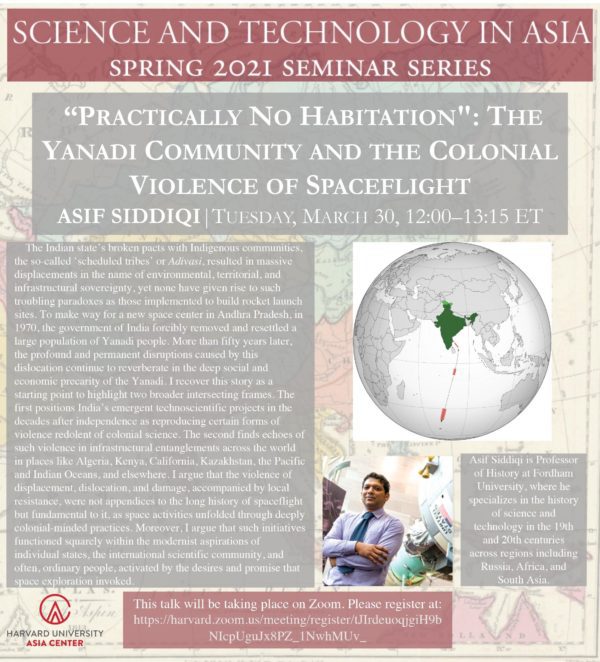Register here to join the webinar.
SPEAKER: Asif Siddiqi, Professor of History, Fordham University
The Indian state’s broken pacts with Indigenous communities, the so-called ‘scheduled tribes’ or Adivasi, resulted in massive displacements in the name of environmental, territorial, and infrastructural sovereignty, yet none have given rise to such troubling paradoxes as those implemented to build rocket launch sites. To make way for a new space center in Andhra Pradesh, in 1970, the government of India forcibly removed and resettled a large population of Yanadi people. More than fifty years later, the profound and permanent disruptions caused by this dislocation continue to reverberate in the deep social and economic precarity of the Yanadi. I recover this story as a starting point to highlight two broader intersecting frames. The first positions India’s emergent technoscientific projects in the decades after independence as reproducing certain forms of violence redolent of colonial science. The second finds echoes of such violence in infrastructural entanglements across the world in places like Algeria, Kenya, California, Kazakhstan, the Pacific and Indian Oceans, and elsewhere. I argue that the violence of displacement, dislocation, and damage, accompanied by local resistance, were not appendices to the long history of spaceflight but fundamental to it, as space activities unfolded through deeply colonial-minded practices. Moreover, I argue that such initiatives functioned squarely within the modernist aspirations of individual states, the international scientific community, and often, ordinary people, activated by the desires and promise that space exploration invoked.
Asif Siddiqi is Professor of History at Fordham University, where he works on the global history of science and technology in the 19th and 20th centuries.
The Science and Technology in Asia Seminar Series is sponsored by the Harvard University Asia Center and convened by Victor Seow, Assistant Professor of History of Science.

